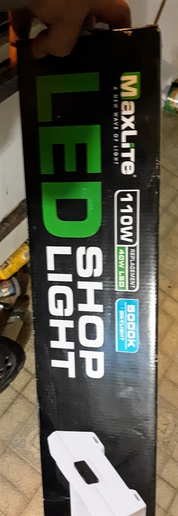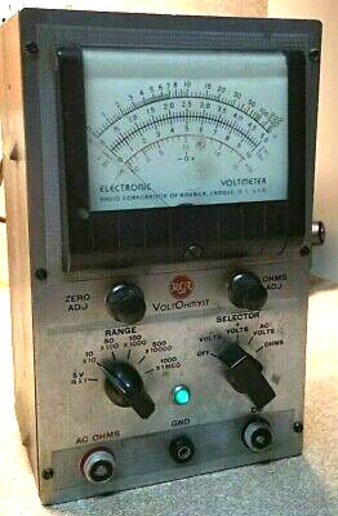old truck lover
Member
Hello I am looking to buy a new multitester I was wondering wich would be better a digital or analog GB brand tester for checking magneto coils and electric motors and different things.
(quoted from post at 16:52:21 12/10/19) There is realy no reason to stay away from a digital meter unless you are considering the $3.99 ones from HF. I own a Fluke and it will do anything you need but cost near $100. Twice now I have found myself out on the road and in need of a meter due to vehicle issues. Once I so happened to be near a HF store and bought one for around $50 that looks like my Fluke. The second time I was near a Lowe's and boughtva DM20 Greenlee for less than $30. Either one of those meters will read correctly on the worst circuits for noise that I work on and will do what you want to do. My Simpson analog meter has not been out of the case for 10 years. The only reason to consider an analog meter is if someone offers to give one to you.

(quoted from post at 21:05:39 12/10/19) Rich, DITTO look at my post below
"As both an electrical engineer and an electrical hobbyist for sixty years, I've used all sorts of expensive or cheap analog as well as digital meters and I STILL LOVE AND USE MY OLD SIMPSON 260 ANALOG woooooooooo hooooooooooo"
John T
It's hard to check a capacitor with a digital meter.

(reply to post at 13:09:24 12/10/19)
We sell tractor parts! We have the parts you need to repair your tractor - the right parts. Our low prices and years of research make us your best choice when you need parts. Shop Online Today.
Copyright © 1997-2024 Yesterday's Tractor Co.
All Rights Reserved. Reproduction of any part of this website, including design and content, without written permission is strictly prohibited. Trade Marks and Trade Names contained and used in this Website are those of others, and are used in this Website in a descriptive sense to refer to the products of others. Use of this Web site constitutes acceptance of our User Agreement and Privacy Policy TRADEMARK DISCLAIMER: Tradenames and Trademarks referred to within Yesterday's Tractor Co. products and within the Yesterday's Tractor Co. websites are the property of their respective trademark holders. None of these trademark holders are affiliated with Yesterday's Tractor Co., our products, or our website nor are we sponsored by them. John Deere and its logos are the registered trademarks of the John Deere Corporation. Agco, Agco Allis, White, Massey Ferguson and their logos are the registered trademarks of AGCO Corporation. Case, Case-IH, Farmall, International Harvester, New Holland and their logos are registered trademarks of CNH Global N.V.
Yesterday's Tractors - Antique Tractor Headquarters
Website Accessibility Policy
